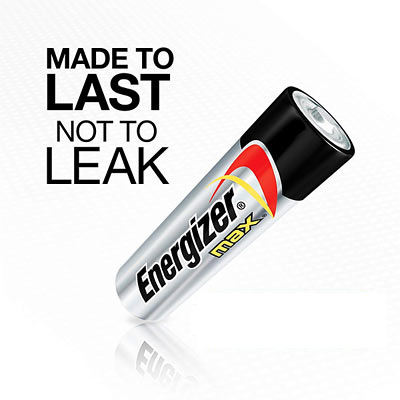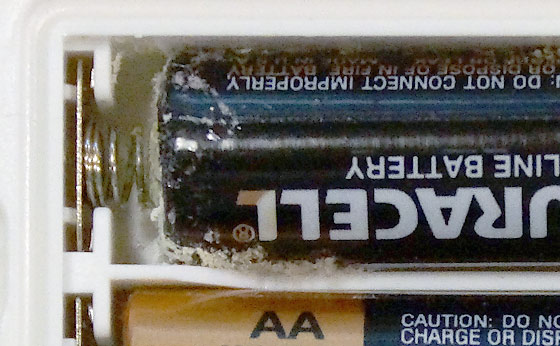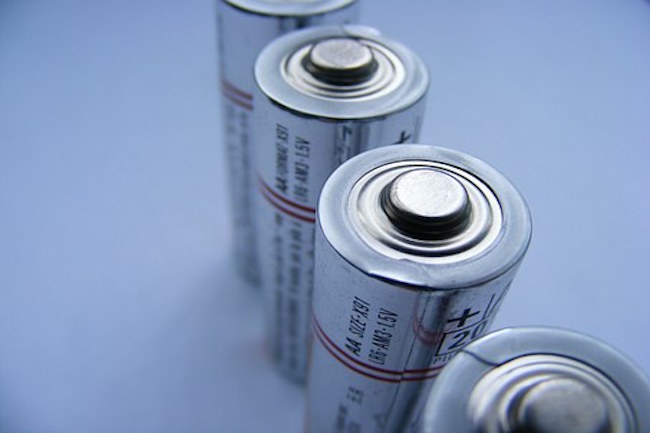Battery Corrosion | Why They Leak And How To Prevent It by by Modern Survival Blog
Why Do Batteries Leak?
How many of you have encountered a corroded battery compartment in one of your consumer devices? No doubt that most of us have seen the ‘white fluff’ of battery corrosion which has migrated into the battery terminals. It creates a mess and may ruin the device all-together.
– Here’s Why battery corrosion happens.
– How to prevent battery corrosion.
– How to clean it up.
I’m referring to typical consumer batteries such as AA or AAA size.
(See below for Car Batteries / corrosion)
Energizer Guarantee | No Leak
UPDATE, Energizer guarantees that these particular batteries will NOT corrode. I made the switch and can attest that none of them have leaked:

What is the White Fluff Corrosion on the Battery?

Potassium Carbonate is the white fluffy corrosion that develops at the ends of the battery. It’s most often seen at the Negative ( – ) end of the battery.
The “alkaline” of the battery is potassium hydroxide. It’s the alkali equivalent of acid’s hydrochloric acid. This will leak out, forming a white “fluff” of potassium carbonate. It typically leaks on the negative end of the battery cell. Why? Apparently the positive end is vented better.
Why Do Batteries Leak?
As batteries discharge, the chemistry changes and some hydrogen gas is generated.
This out-gassing process increases pressure in the battery.
Eventually, the excess pressure may rupture the insulating seals at the end of the battery, or the outer metal canister, or both.
Dead (AA | AAA) Batteries may Leak
All batteries will slowly gradually self-discharge over time. This will occur whether they are setting on the shelf (a much slower process) or installed in a device (which often occurs much quicker). And dead batteries may eventually leak, resulting in the “white fluff” corrosion.
High Temperatures
High temperatures can also cause batteries to rupture and leak (hot, summer environment).




